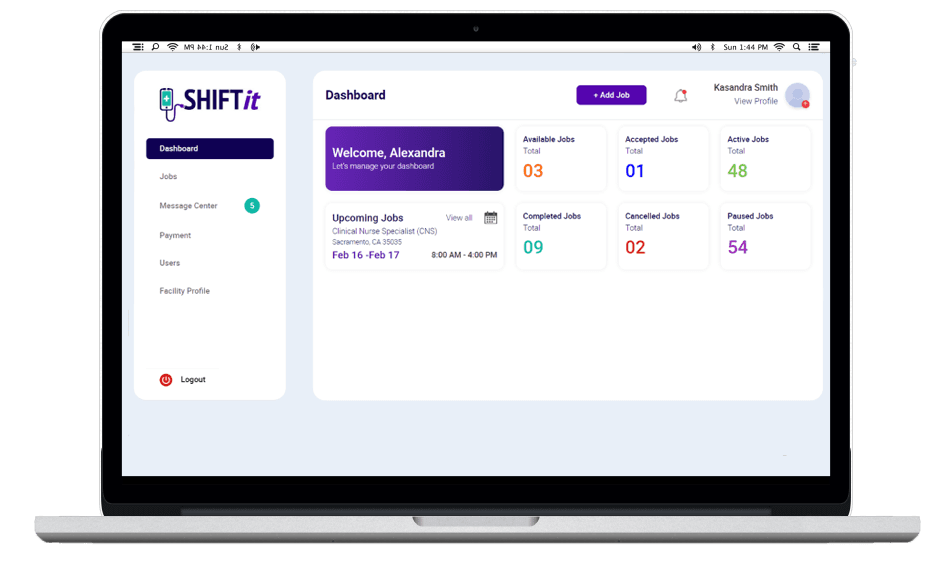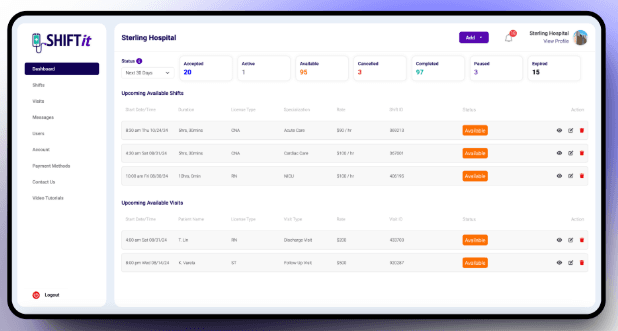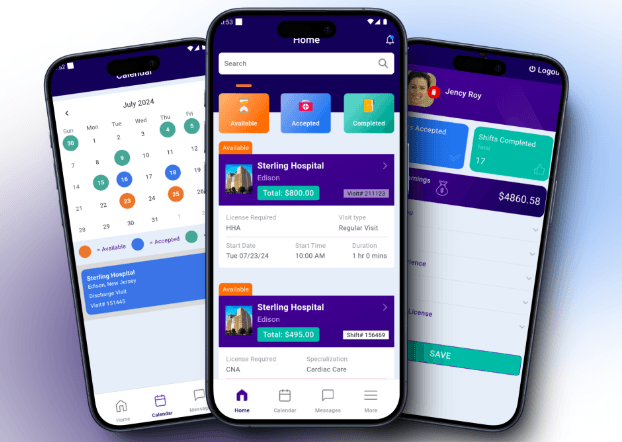Healthcare & Dental Staffing,Simplified.
Connect directly with Healthcare Facilities, Dental Offices, and Professionals - all on your terms. Skip the agencies, eliminate delays, and find your perfect match directly. Whether you're looking to fill a shift or seeking opportunities, discover the power of seamless healthcare staffing.

- Real-time Matching
Find and connect with healthcare professionals instantly based on your specific needs.
- Verified Professionals
All healthcare professionals are pre-vetted and their credentials are verified.
- Direct Communication
Connect directly with facilities or professionals without intermediaries.
- Large Network
Access thousands of healthcare facilities and professionals across the country.
- Facility Dashboard
Comprehensive tools for managing staffing needs and scheduling.
- Compliance Tracking
Automated compliance monitoring and credential tracking.

How it Works?
Facilities
Post Your Shift
Detail the requirements and specifics of the shift you need filled.
Real-Time Matching
Receive immediate notifications as qualified medical providers accept your shift.
Power up your workforce
Once matched, your healthcare professional is ready to deliver top-notch care.

How it Works?
Professionals
Set up profile
Fill out your profile and upload your required documents. Get verified instantly!
Get Matched
Our algorithm matches you with desired shifts based on your availability, location, and expertise.
Confirm & Contribute
After accepting a shift, arrive and provide exceptional patient care.
Download SHIFTit App
For Professionals
Pick shifts with a tap
Control your schedule
Choose when and where to work
Pick your preferred pay rate
Get paid
Track your earnings
Message facilities directly
Get the app today!
Clinical Rotations & Employment Pipeline
Empowering Clinical Excellence Through Streamlined Coordination
Streamlining Placement Processes
Our SHIFTit platform automates the placement process, ensuring students, clinical sites and schools are aligned for a better healthcare future.
Flexible Scheduling
Enhanced Communication
Managing Compliance and Documentation
Employment Pipeline
Trusted by Healthcare Leaders
"SHIFTit Health has revolutionized how we handle our staffing needs. The platform is intuitive and efficient."
"Finding qualified healthcare professionals has never been easier. The verification process gives us peace of mind."
"The direct communication feature has significantly reduced our time to fill a shift. Excellent platform!"
Our Trusted Partners




-ObehbAEzkiDkrvbZwu11oJqgwr4PZQ.png&w=3840&q=75)
